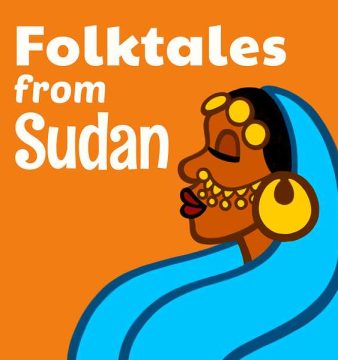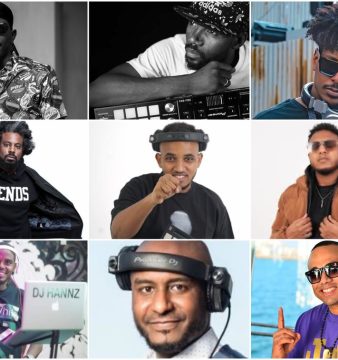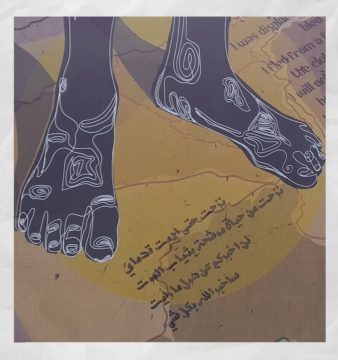Non-Sudanese Performing and Contributing to Sudanese Music
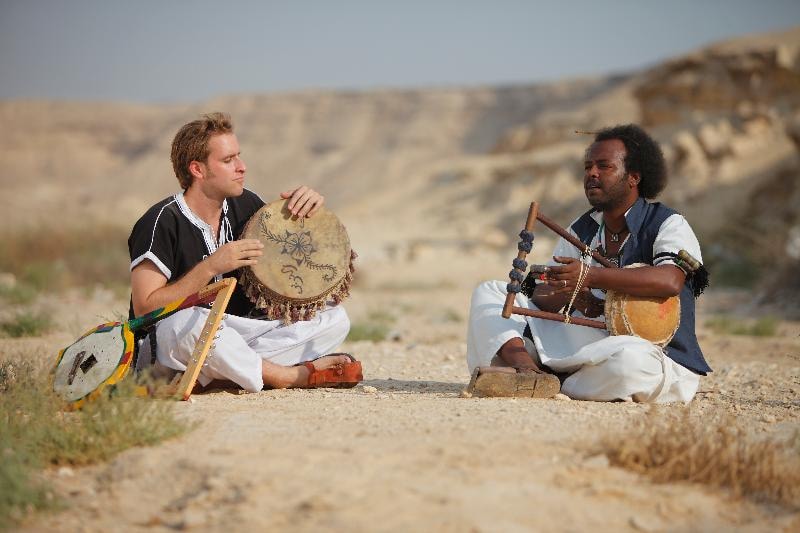
(Left to right): Miguel Merino and Ahmed Said Abuamna from Otaak Band
Undeterred by Sudan’s incessant instability and repression, music has always been a constant and symbol of resilience that continues to capture the country’s unique and diverse cultural history. With more than 500 ethnic groups and 100 different dialects, Sudan has been a bridge between Africa and Arabia; mixing Middle Eastern elements with influences from North, East, and West Africa, cultivating a distinctive musical culture.
Throughout modern Sudanese history, music was used as a tool of resistance against political, religious and social constrictions. In fact, several well-known Sudanese artists such as poet Mahjoub Sharif and musicians Mohammed Al Amin, Mohammed Wardi and Howa Al Tagtaga were imprisoned or forced to flee to other countries.
Rooted in Sudan’s complex history, music has always been historically significant yet many remain oblivious to it, including myself. Of course I would know of prominent artists whose names I would always hear my parents mention or make me listen to as they appreciated the lyrics and I enviously watched wishing I could understand and relate. There was Sayed Khalifa, Osman Hassan, Mohamed Al Mustafa, and of course Mohammed Wardi and many others that I grew up hearing but not really listening to. Living outside of Sudan, it was very rare to meet a non-Sudanese that was familiar with our music. In fact, despite my curiosity, I was unconcerned about Sudanese music so why or how would a non-Sudanese know?
Fast forward some years later, I find myself pleasantly surprised to witness the revival of appreciation of Sudanese music beyond Sudan. The popularity of Sudanese music is mostly visible in East African culture; however, with younger generations of artists emerging, whether local or in the diaspora, this style of rhythm is becoming more widespread.
In no particular order, below are a few examples of non-Sudanese artists that have borrowed these elements or collaborated with Sudanese artists to perform Sudanese music.
Otaak Band
Otaak Band consists of American musician Miguel Merino and Sudanese musician Ahmed Said Abuamna. Originally from Beja, Abuamna is a master of the Beja’s traditional lyre, the masankop, and the rich, powerful vocal style of Beja music. Miguel is a drummer and composer who sought to bring together their two different yet connected styles of music. Otaak Band plays everything from traditional melodies to pop-rock songs, bringing a contemporary sound and link to the ancient past. Learn more about them here.
Teddy Afro
If there’s anyone that appreciates Sudanese music it’s the Ethiopians. Many times I would often listen to an Ethiopian song until I realise the Arabic I didn’t understand was actually Amharic and vice versa. Teddy Afro is considered to be with one of the most famous and influential Ethiopian artists and a well-known celebrity in Sudan — hosting numerous concerts and performing Sudanese classics such as the late Mohammed Wardi’s “Seberta” during his memorial event in Khartoum. Many other Ethiopian artists have performed the song and other Sudanese songs especially by Mohammed Wardi in Ethiopia.
Zeina Aftimos
Inspired by the likes of Fairouz, Asmaham, Omaima ElKhaleel and Julia Botrous, Zeina Aftimos is a Syrian singer that has performed masterpieces in English, Arabic and French. Listen to her rendition of “Asmar Jameel” by the legendary Ibrahim Al-Kashif.
Almas
While Sudanese music does not have a strong presence in the Arab world, it’s slowly gaining recognition with several artists performing covers of Sudanese songs or holding concerts in Sudan. In rare occasions do we see Arab singers producing Sudanese songs. On 1 September 2017, Khaliji singer Almas, released a Sudanese song called “Al Red, Al Red” “الريد الريد” with a music video, which has gained over one million views.
Shatha Hassoun
Moroccan singer Shatha Hassoun sings a Sudanese classic, “Keda Keda Yal Terilla” “كدا كدا يا ترلة”, on the music TV channel, Wanasa, which is run by MBC Group. Hassoun’s cover infuses the Sudanese song with Khaliji melodies and beats. The song is commonly performed by non-Sudanese musicians especially our Ethiopian neighbours.
Sudan Archives
Hailing from Cincinnati, Ohio, Sudan Archives is the stage name of Brittney Parks who is currently based in Los Angeles. A violinist and vocalist, her stage name stems from her nickname ‘Sudan’ because it ‘happens to have a lot of violin music’ something that she attributed as ‘really cool’. The ‘Archives’ refers to digging deep to be herself. Sudan Archives draws inspiration from the fiddlers of Sudan, mixing classical symphonies with electronic sounds. Listen to her single “Come Meh Way”!
Samy Deluxe
Born to a Sudanese father and German mother, German rapper Samy Sorge, also known as Samy Deluxe, has previously performed in his father’s native Sudan. His remix titled “Sudanese Honey” fuses East African melodies with contemporary rap beats.
Disclosure
With hits like “Help Me Lose my Mind“, “Latch” and “You and Me“, Disclosure released their most recent single, “Where You Come From“, an electronic EP influenced by the Sudanese James Brown, Kamal Keila’s “African Unity”, and other recordings from German record label Habibi Funk. This electronic duo from England fuses a mixture of vivid sounds ranging from upbeat drumming to sweet vocals.
Joss Stone
Using the style of old Sudanese singers with a jazz twist, Nancy Agag joins forces with English singer and songwriter Joss Stone performing Agag’s song, “Ahibak”, which is about ‘unconditional love’ for Sudan. Whether you understand Arabic or not, both Stone and Agag delivered soulful vocals that transcend language barriers.
Akua Naru
American hip-hop artist Akua Naru performed all over the world, with concerts spanning across six continents and holding lectures at Harvard, Oxford, Cornell, University of Cologne (Germany), Ahfad University for Women in Sudan. During her time at Sudan, Naru helped develop the all female group known as Salute Yal Bannot, an 11-member band from different parts of Sudan. Formed in Khartoum, Salute Yal Bannot, which means ‘respect to women’, uses music as a platform to advocate for women’s rights. The group hopes to be a source of hope for women around the world. Watch here to learn more about their journey from Khartoum to the stage of Arab’s Got Talent.
US Embassy in Sudan
https://www.youtube.com/watch?v=P4HvCJ3ct5o
Earlier this year, the US Embassy in Sudan invited jazz group Petrios to perform “Ahib Makan Watani Al Sudan” “أحب مكان وطني السودان” by the late Ibrahim Awad. This American collaboration of the Sudanese classic reflects the harmonious sounds of Sudan between the people, and the land. Watch Petrios as they hit the streets of Khartoum on a quest for a taste of Sudan whether it’s trying to choose a markoob print, buying the perfect cut of shaya, or asking for sesame oil (zayt simsim) at your local foul shop.
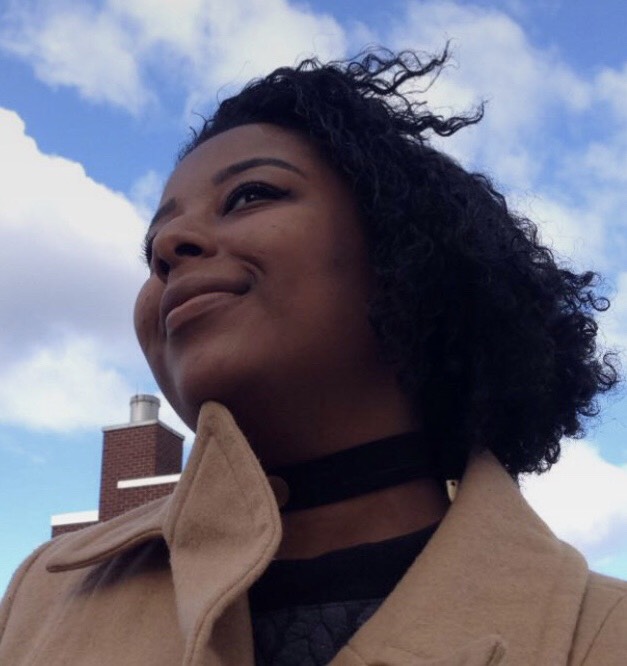 An aspiring peacemaker, Yousra Khalil graduated with an M.A. in International Affairs with a concentration in peace and conflict resolution from the George Washington University. When she’s not working on countering violent extremism, she enjoys trivia, naps, travelling, memes, and good food. Currently based in Washington, DC, Yousra splits her time between the US, Qatar, and Sudan.
An aspiring peacemaker, Yousra Khalil graduated with an M.A. in International Affairs with a concentration in peace and conflict resolution from the George Washington University. When she’s not working on countering violent extremism, she enjoys trivia, naps, travelling, memes, and good food. Currently based in Washington, DC, Yousra splits her time between the US, Qatar, and Sudan.

